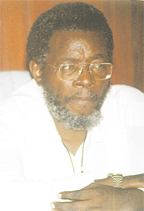Officials of the National Insurance Scheme (NIS) are concerned that the new Memoran-dum of Cooperation (MOC) between the Scheme and the Ministry of Labour which allows officers attached to the two agencies to inspect each other’s records for transgression of labour and national insurance regulations could create problems for the Scheme without doing much to resolve its real difficulties.

Speaking with this newspaper earlier this week a senior NIS source said that allowing functionaries not employed by the Scheme to inspect NIS records “raises important legal questions including questions of confidentiality. The official told Stabroek Business that while the law was not his “particular strength,” he was unaware of the existence of any legal instrument that allowed for a sharing of information between the two agencies.
And according to the source the new collaborative initiative has resulted in “some amount of anxiety” within the NIS since the MOC was “actually initiated by the Ministry of Labour and had nothing to do with a request from the NIS.”
The source said that there was need for both certification and empowerment in order to allow for persons outside of the Scheme to perform this important function.

And according to the source the MOC “cannot be considered to be a practical measure since it does not go to the heart of the problem facing the NIS.” The source explained that the MOC was intended to increase the rate of detection of delinquent employees in circumstances where this was not “the real problem” facing the NIS. “The major defaulters are already under the radar. It is the collection of monies owed to the Scheme rather than the detection of offenders that is the issue and as far as I know the MOC makes no provision for collection.”
According to the source the real problem has arisen out of the hurdles that the NIS faces in enforcing the law including “the slow pace at which the courts move.” The source told Stabroek Business that the legal bottlenecks were not the only constraints confronting the NIS. “Some defaulters are able to find their way around the legal system while others are able to avoid the system altogether. There are cases in which we have taken legal steps against defaulters and it has not seemed to us that this has been popular with the authorities. What the NIS really needs are public assurances that it has the support of the key decision-makers in the society. Were we to secure those assurances we can do more,” the source said.
Meanwhile, this newspaper has been informed that the amount owing to the Scheme by delinquent private sector employers has climbed above $600m. “The amount is climbing and the level of delinquency is growing worse,” the source said. The source explained that delinquent private sector employers are fully aware that the NIS is caught between a rock and a hard place. “The Scheme desperately needs the support of both the executive and the legal systems at this time. Unfortunately, one cannot honestly say that we have either and the businessmen are well aware of this.”
Asked whether the intervention by the President, a course of action recommended in this week’s editorial, was appropriate the source said that while political intervention “was, perhaps not ideal,” he felt that the ends justified the means. “If that is the way that we have to go in order to persuade those delinquent businessmen to pay up then so be it. The option is to leave things as they are and have NIS contributors put up with more difficulty and see the Scheme as a whole suffer more. In my view that is not an option and I believe that the President should see it that way too. The offenders in the business community” are likely to “take a different view of the matter” once they know that the President is aware of the situation, the source added,
“The list of major offenders can be made available to the President at the drop of a hat and it is undoubtedly true that a public pronouncement from him will bring a change to the existing situation.”





